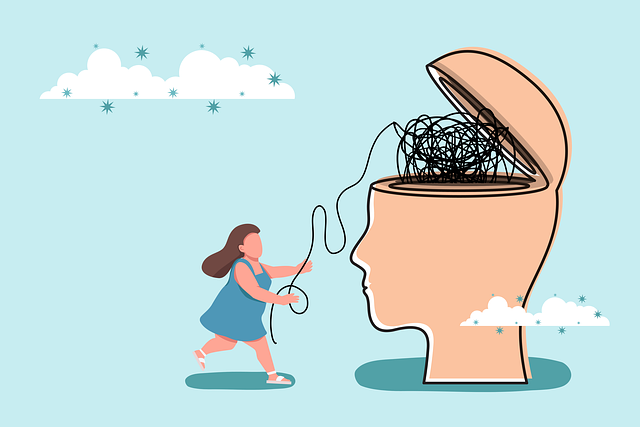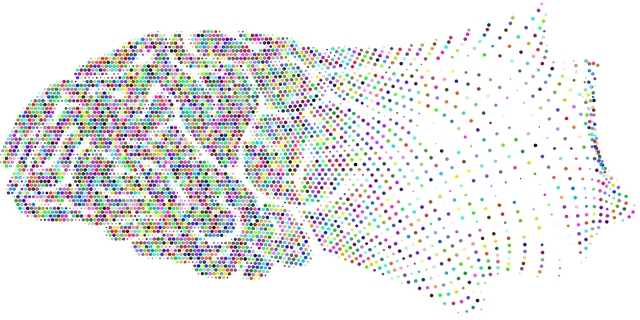Trauma significantly impacts young children's development, leading to emotional and behavioral issues. Unaddressed trauma can contribute to long-term challenges like psychosis. Specialized therapy, such as compassion cultivation and stress management practices, proves effective in supporting recovery. Key components of successful trauma care include creating safe spaces, play therapy, and stress reduction methods, fostering resilience and promoting healthy development. Early intervention with evidence-based approaches like cognitive-behavioral therapy (CBT) is crucial for managing psychosis among youth. Integrating various holistic therapies, structured activities, and supportive environments empowers children to overcome challenges and facilitate long-term recovery from psychosis.
In today’s complex social landscape, understanding and addressing trauma among young children is more critical than ever. This article explores the profound impact of trauma on childhood development, focusing specifically on psychosis in youth. We delve into effective strategies for providing trauma support services, emphasizing the pivotal role of therapy tailored to young minds. By examining evidence-based approaches, we aim to illuminate paths towards healing and resilience for children affected by traumatic experiences, including those grappling with psychosis.
- Understanding Trauma and Its Impact on Young Children
- The Role of Therapy in Supporting Psychosis in Youth
- Strategies for Effective Provision of Trauma Support Services
Understanding Trauma and Its Impact on Young Children

Trauma can have profound effects on young children, shaping their emotional and psychological development. It’s crucial to understand that a child’s response to traumatic events may differ significantly from adults due to their still-developing brains. Early life experiences, particularly in the first few years, play a pivotal role in forming their stress response systems. Unaddressed trauma can lead to long-lasting challenges, impacting their ability to regulate emotions, form healthy relationships, and cope with stressors.
The impact of trauma extends beyond emotional distress, potentially contributing to behavioral issues, learning difficulties, and even psychosis in severe cases. However, providing timely and appropriate support through specialized therapy for young children can make a significant difference. Evidence-based approaches like compassion cultivation practices and stress management workshops within an organization have shown promise in helping these vulnerable individuals. Effective trauma care involves creating safe spaces, utilizing play therapy, and incorporating stress reduction methods to nurture resilience and promote healthy development.
The Role of Therapy in Supporting Psychosis in Youth

The role of therapy in supporting psychosis in youth cannot be overstated. Early intervention is key to managing symptoms and promoting mental wellness in young individuals experiencing psychotic disorders. Through specialized therapeutic approaches, such as cognitive-behavioral therapy (CBT) and family-focused therapy, professionals can help these youngsters navigate the challenges associated with psychosis. CBT equips them with coping strategies to manage hallucinations and delusions while fostering better decision-making skills. Family-focused therapy involves caregivers in the treatment process, enhancing their understanding of psychosis and strengthening support systems, which is crucial for the long-term mental health awareness and recovery of young patients.
In addition to these evidence-based practices, mental illness stigma reduction efforts play a significant role in supporting youth with psychosis. Reducing the social and self-stigma associated with mental health conditions can encourage young people to seek help without fear of judgment or discrimination. This supportive environment is essential for building resilience and fostering a positive outlook on mental wellness. By combining effective therapy, stigma reduction strategies, and increased access to mental health services, we can better support young individuals in their journey towards recovery.
Strategies for Effective Provision of Trauma Support Services

The effective provision of trauma support services requires a multifaceted approach tailored to meet the unique needs of individuals affected by traumatic experiences. For young children experiencing psychosis, early intervention is key. Therapies such as cognitive-behavioural therapy (CBT), play therapy, and art therapy can be instrumental in helping them process their experiences, develop coping mechanisms, and rebuild a sense of safety and stability.
Integrating stress reduction methods, like mindfulness techniques and relaxation exercises, into these therapeutic frameworks can further enhance the benefits. Encouraging mental wellness journaling as a guided exercise fosters self-reflection and expression, aiding individuals in making sense of their traumatic memories and emotions. Additionally, building resilience through structured activities and supportive environments empowers those affected by trauma to navigate challenges and promote long-term recovery.
Trauma support services play a vital role in mitigating the profound effects of trauma on young children. By understanding the impact of trauma and leveraging effective strategies, such as therapy tailored for psychosis in youth, we can foster healing and resilience. Implementing these evidence-based practices ensures that young individuals receive the comprehensive care they need to navigate their experiences and thrive.














